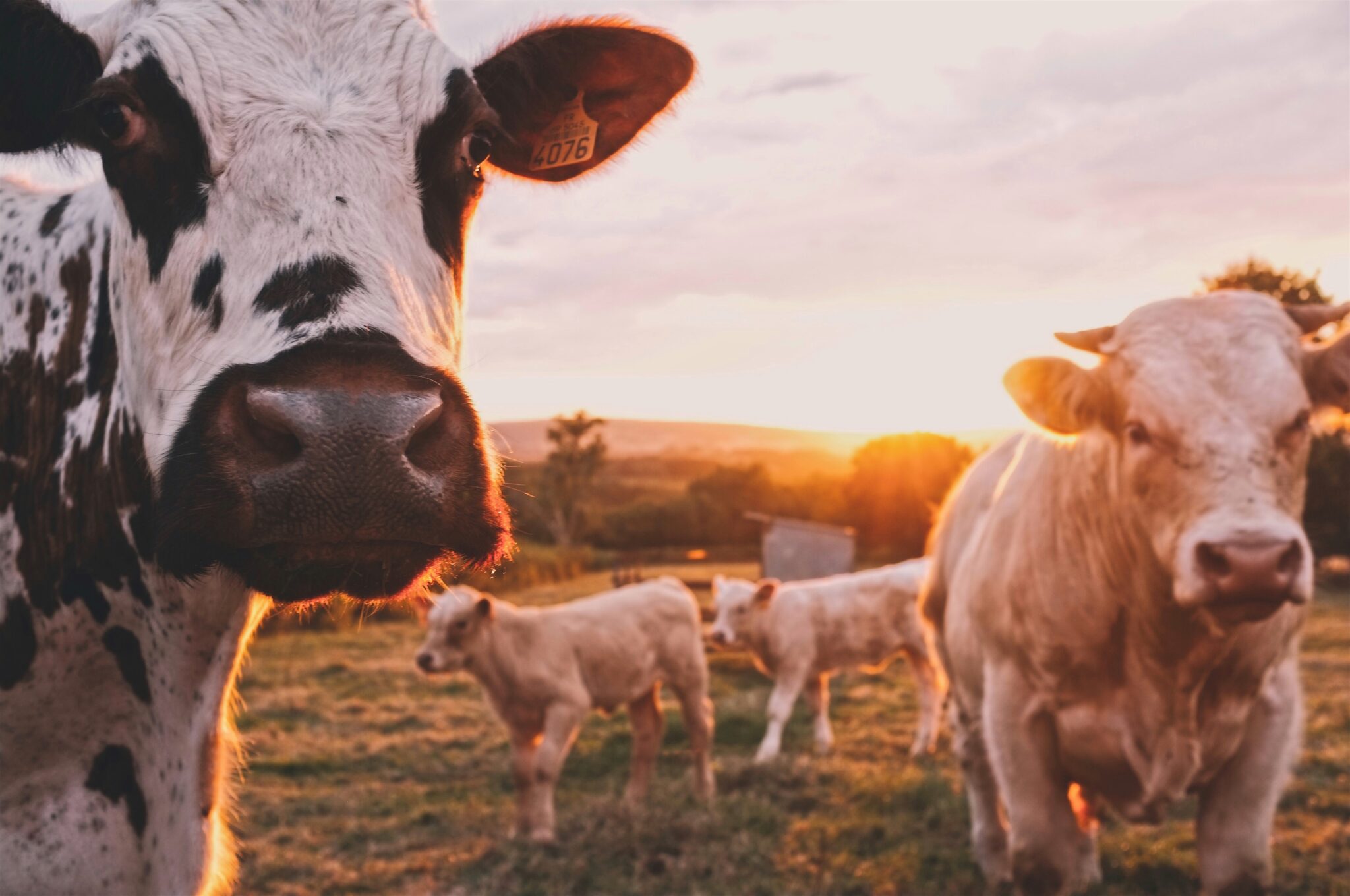Cows burp out Methane, which is 34 times more potent than carbon dioxide among the greenhouse gases that heat up the world. A biotech startup, Lumen Bioscience, based in Seattle, has come forward with a solution to this problem. An enzyme—made of spirulina breaks down the microorganism responsible for reducing these emissions at a low cost.
Methane — a hot gas
Greenhouse gases help maintain the temperature of the Earth; they are a combination of carbon dioxide, methane, ozone, nitrous oxide, chlorofluorocarbons, and water vapour. Methane is a greenhouse gas released during the breakdown of organic substances, for example, in the gastrointestinal tract of animals. Researchers at Wageningen University have found Ruminants (cows, goats, sheep) to be a particular source of much methane.
Agriculture is also known to be the predominant source of methane. In fact, according to data from the United States National Oceanic and Atmospheric Administration, even as carbon dioxide emissions decelerated during the pandemic-related lockdowns of 2020, atmospheric methane shot up. Sustainable development has become a crucial step to combat global warming and reduce carbon footprints that heat the Earth. Companies are finding effective strategies to take part in this initiative.
Lumen to the Rescue
Lumen Biosciences, a biotech start-up based in Seattle, is dedicated to producing cost-effective and patented biologic drugs to cure gastrointestinal diseases in the human gut using spirulina. One such product is the study on bacteria C. difficile to treat recurrent infections in the human gut.
This technique inspired the researcher at Lumen, Mark Heinnickel, who had grown up on a dairy farm, to realize that if the same basic approach targeted methane-producing bacteria, it might help cows’ climate problem. In an interview for Fast company, he said, “He realized if we can kill the C. difficile bacterium that causes human suffering, maybe we can make the same class of enzymes, feed it to cows, and stop methane,” this can in turn, potentially help reduce the greenhouse effects, as methane is 20 times more potent than carbon dioxide.
Spirulina is an edible algae that is considered to be a valuable tool in the making of biological medication if only it could be engineered. Researchers at Lumen Biosciences are the only company with successfully engineered spirulina and commercially produced viable, orally administered patent biologics at low cost. They have a large-scale manufacturing process contrary to traditional medication, which uses conventional methods like mammalian cells or injections, and they take pride in the efficacy and high yield of their product.
Other companies have suggested using seaweed supplements to treat the exact cause. Still, there are health and safety concerns regarding additives like bromoform, a potential carcinogen found in the plant, in addition to low yield and high costs. Using spirulina avoids such concerns as feeding the cows spirulina containing the enzyme does not in any way get absorbed in the cow’s bloodstream or milk.
While addressing the fast company, Lumens CEO Brian Finrow assured that the technology used and the enzyme lysin work like a sniper rifle that only targets harmful microbes. He also compared the product to Beano, an enzyme that humans take as a supplement to reduce gas.
Wilkes Center Climate Prize of $1.5M awarded to Lumen Biosciences
The University of Utah recognized Lumen for its groundbreaking proposal to significantly reduce methane emissions from cattle using a patented enzyme mixture. This innovative approach outshone 77 international competitors and holds the potential to revolutionize climate change mitigation efforts.
Lumens CEO Brian Finrow and Chief Scientific Officer Jim Roberts founded Lumen with the vision of revolutionizing protein therapeutics manufacturing, enabling them to address global challenges that conventional biomanufacturing technologies cannot tackle. The recognition bestowed by the Wilkes Climate Prize at the University of Utah serves as a powerful affirmation of Lumen’s commitment to making a positive impact on the world.
It is important to note that these drugs are in the development phases and have promising lab results. Researchers at Lumen suggest one supplement a week for cows once all trials are successful. In an interview with Fast Company, Joseph McFadden, a professor of dairy cattle biology at Cornell University, said, “Clinical efficacy and safety trials are needed for that kind of technology.”
Lumen plans on launching the Rumen biosciences company if the drug trials on cows are thriving, along with approvals from the governments, for example, the FDA. Their patented enzyme mixture will target methane-producing microorganisms in the rumen, a specialized compartment of the cow’s digestive system. This groundbreaking technology, developed by Lumen’s highly skilled scientists, has the potential to mitigate cattle’s contribution to climate change significantly.
References
FAQ: What is the greenhouse effect? (n.d.). Climate Change: Vital Signs of the Planet. Retrieved 4 November 2023, from https://climate.nasa.gov/faq/19/what-is-the-greenhouse-effect
Lumen Bioscience wins historic $1.5M Wilkes Center Climate Prize—@theU. (n.d.). Retrieved 4 November 2023, from https://attheu.utah.edu/facultystaff/wilkes-prize-winner/
Methane emissions are driving climate change. Here’s how to reduce them. (2021, August 20). UNEP. http://www.unep.org/news-and-stories/story/methane-emissions-are-driving-climate-change-heres-how-reduce-them
Muizelaar, W., Groot, M., Duinkerken, G. van, Peters, R., & Dijkstra, J. (2021). Safety and transfer study: Transfer of bromoform present in asparagopsis taxiformis to milk and urine of lactating dairy cows. Foods, 10(3), 584. https://doi.org/10.3390/foods10030584
Peters, A. (2023, September 26). Cows burp out too much methane. This biotech startup is making a bovine Beano. Fast Company. https://www.fastcompany.com/90957325/cow-burps-methane-biotech-startup-enzyme-bovine-beano
PPT – Intergovernmental Panel on Climate Change (IPCC) PowerPoint Presentation—ID:4766348. (n.d.). Retrieved 5 November 2023, from https://www.slideserve.com/morty/intergovernmental-panel-on-climate-change-ipcc
The Greenhouse Effect | Center for Science Education. (n.d.). Retrieved 4 November 2023, from https://scied.ucar.edu/learning-zone/how-climate-works/greenhouse-effect
Also Read: BREAKING THE ODDS IN FIELD EPIDEMIOLOGY IN PAKISTAN
Rebah Tanvir, a science communicator at Scientia Pakistan aims to empower young South Asian scientists with the tools needed to thrive in STEM fields. She advocates sustainability initiatives and has worked with not-for-profit organizations on SDG-driven projects to build a brighter future for her community. Rebah is a Biosciences graduate from COMSATS University Islamabad, Pakistan with research in Astrobiology. She’s currently associated with the World Space Week Association’s 2024 project on space and climate change.

